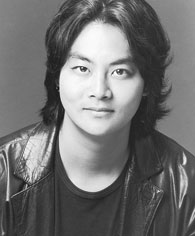Let me tell you a secret.
Writing this article is no small feat.

Opera: meaning "works" in Italian, of which the singular is opus - "work." Thus, the plural form suggests an art form that is borne of a combination of other art forms: solo and choral singing, declamation, acting and dancing in a staged spectacle. In short, whatever that is second nature to us queers, give or take a few martinis.
The Singapore Lyric Opera (SLO) has for its current season arranged a series of performances and programs in tribute to one of musical family most lauded darlings: Wolfgang Amadeus Mozart. Apparently, he entered the world of the living exactly 250 years ago. Ancient creatures make sound companions to those whose eyes are watching only God.
Le Mariage de Figaro was originally a play written by French satirist Pierre Beaumarchais. Two years after its premiere, Mozart adapted it into his opera Le Nozze di Figaro. Much satiric elements of the original work that made it taboo in respectable society (namely the aristocrats) were filtered off in the course of this adaptation, the libretto of which was written by then court poet Lorenzo da Ponte, who spent an equally exhaustive amount of energy in persuading the Emperor Joseph II to greenlight the project which Mozart was apparently more than besotted with.
The opera tells the story of misadventures that occur over the course of a single day on the wedding day of Figaro and Susanna, personal servants to the Count and Countess Almaviva. If love is indeed a rebellious bird, no points for guessing if the heart should flee from husband to bride, or from bride to someone other than the groom. In fact, over the course of this single day, multiple marriages will occur, and identities would have switched thrice over. And like any other story with a happy ending, the lover and his beloved will reconcile their love for each other just before curtain call. As the saying goes: "marry the one you love, and love the one you're with."
Playing Figaro in SLO's current production is Teppei Kono. Hailing from Fukushima, Japan, Kono is currently finishing a program with Chicago Opera Theater and Chicago College of Performing Arts as a Performance Diploma candidate.
Kono is quite an eye-candy, and I'm sure his voice tastes just as sweet (and some more). Geraldine Farrar, long dead diva, once said, "at every performance I cut myself open with a knife and gave myself to the audience." This too, I'm sure of it, would be the stuff of Kono's own legend on stage.
In a candid expose, Kono told us: "I always say that you have to keep going even if you forget a whole line or lines. As long as you are engaged in the performance and you put your whole self in the commitment of the performance, audience will more than likely remember the performance not the mistake. I have occasionally come across this problem, making up words, saying the wrong verse, and even forgetting what I have memorised and rehearsed.

Teppei Kono (above) - originally from Fukushima, Japan - plays the title role in The Marriage of Figaro. Kono has performed numerous different roles such as Figaro in Le Nozze di Figaro at DuPage Opera and also at Cleveland Institute of Music.
It is a veritable sign that only one mark, one letter, separates queen and queer: n/r, the "r" an incomplete "n." In 1958, opera diva Maria Callas walked out after the first act of a gala performance of Norma in Rome, of which the President of Italy was one of the night's attendees. Callas had a bout of flu and walked out of the opera house, make-up still intact, choosing voice over glory in a feat Casta Diva would have been proud of. Haven't we heard that somewhere before?
"There is nothing wrong for canceling a performance due to a cold," says Kono, "if it is not your best then I rather not show them my worst."
"I have performed in my worst condition in front of an audience. They could be a group of adults or even group of children, they will know that something is wrong. Again, I will go back to the question prior to this. As long as you are engaged with the character that you are performing and convinced the audience that you are that person, they would enjoy the performance. Now that being said, it is after all the art form is opera, people are there to hear you sing. If the singing is bad then there is not much of covering up in that department. I rather cancel the show to save my voice instead of put my artistry and what I can do on stage on the line."
As Wayne Koestenbaum - poet, intellectual, tutor, queen - puts it: "the throat, for gay men, is a problem and a joy: it is the zone of fellatio. Not everyone chooses fellatio: gayness doesn't depend on oral sex, and straightness includes it."
Ha, if I knew what I'm writing about, I won't be writing it. I would have sung - with not just an open throat.
SLO's Le Nozze di Figaro will be playing from 14 till 17 July at the Esplanade Theatre.
The Marriage of Figaro
Singapore Premiere
In celebration of the 250th birthday of
Wolfgang Amadeus Mozart
14, 15 & 17 July 2006
Esplanade Theatre
Director: David Edwards
Conductor: Lim Yau
Cast:
Teppei Kono as Figaro
Rachelle Gerodias as Susanna
Andrew Fernando as Count Almaviva
Nancy Yuen as Countess Almaviva
Prices: $25, $35, $60, $85, $110 & $130
$35 tickets are sold out for the performance on 14th July.
For bookings, please call SISTIC at 6348 5555 or visit www.sistic.com.sg. Tickets are also available at all SISTIC authorised agents. Prices stated exclude SISTIC fee.
